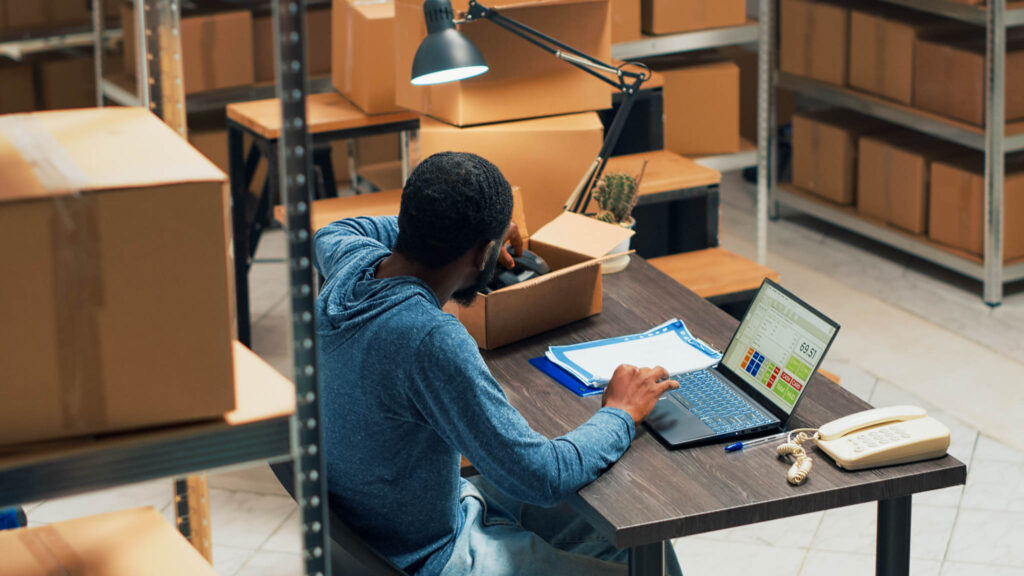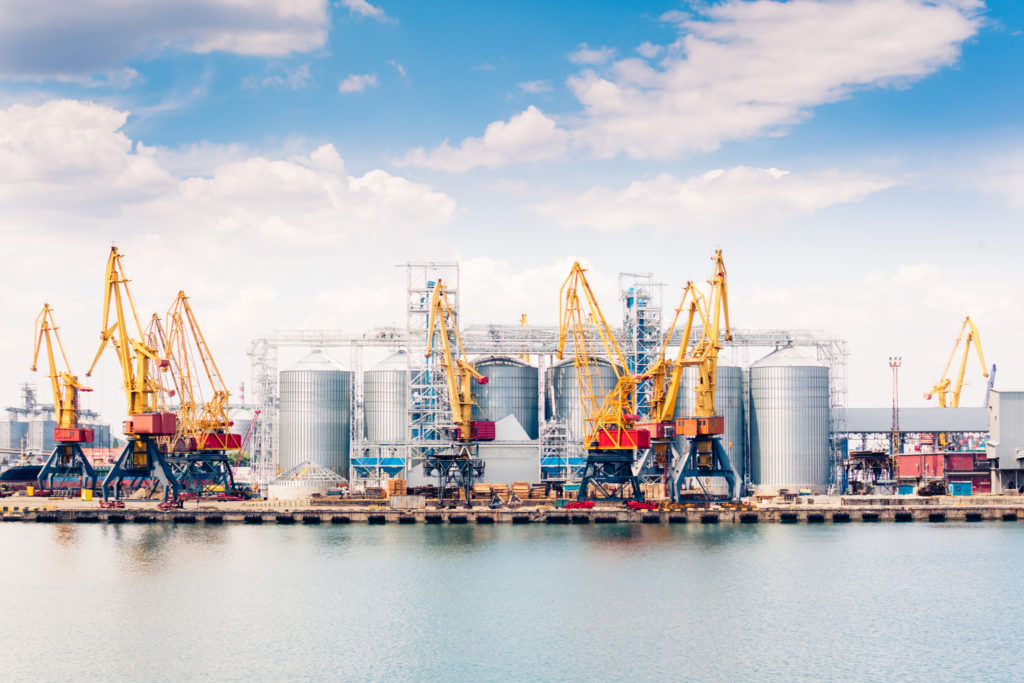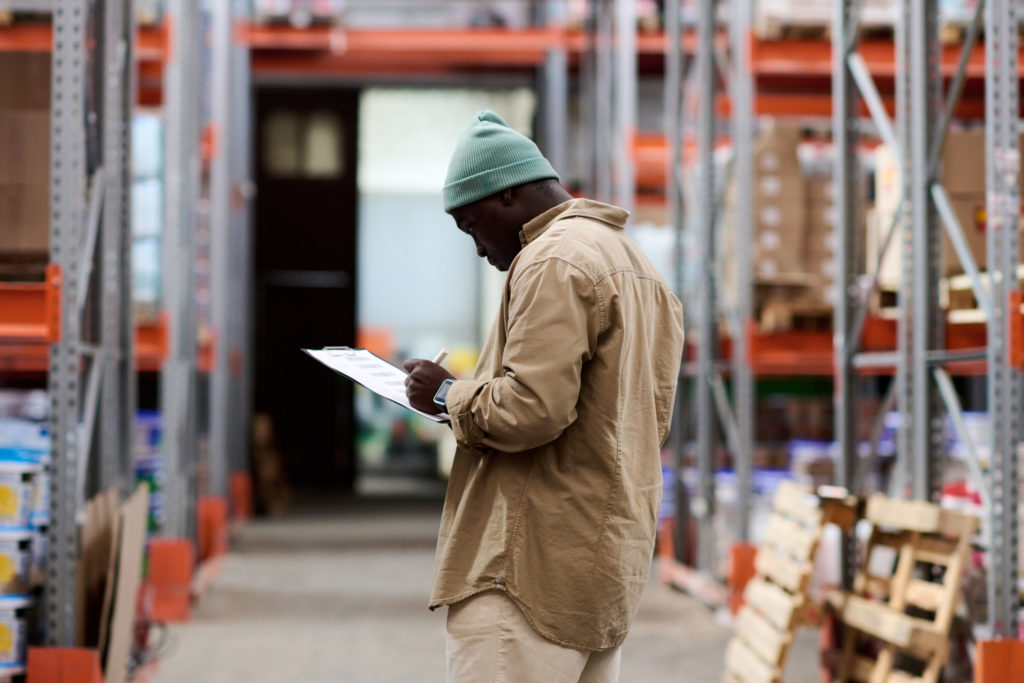Supply chain management is complex, requiring accuracy, precision, and timeliness. But how do blockchains in supply chain management processes help manufacturers, warehouses, and delivery companies with inventory management, order tracking, and meeting sustainability goals?
Using the blockchain for logistics in production, warehouse storage, packing, shipping, and delivery can provide a variety of solutions for everything from sourcing sustainable materials to drone delivery. The blockchain has enormous potential to help manufacturers and logistics companies track shipments, write secure contracts, source sustainable materials, and even project future patterns.
What Is the Blockchain?
The blockchain is a decentralized ledger that includes encrypted blocks of data linked together in “chains” of data clusters. It arranges information in chronological order and offers authorized sharing for transparency and security.
The blockchain also allows you to utilize smart contracts for automated fulfillment when the appropriate parties meet certain terms in the contract. Smart contracts managed through the blockchain increase efficiency in sharing information and collaborating between key stakeholders in the supply chain.
How Can You Use the Blockchain in Supply Chain Management?
The blockchain offers traceability, transparency, and automation. At every point of supply chain management, these functions allow you to source sustainable materials for production, improve safety and security for consumers, manage inventory effectively, and improve collaboration throughout the supply chain.
Tracking and Transparency
Internet of Things (IoT) devices include computing hardware built into cars, phones, and other network-ready devices that can connect wirelessly with larger networks and devices. This includes sensors, voice-controlled home devices, smart devices, and more.
RFID tags, smart sensors, and similar devices inside products or product packaging can track products through the supply chain to monitor location, condition, quantity, and other key information to load to the blockchain. This data can make inventory management easier, tracking specific products by discovering issues like high humidity in a facility that could lead to product loss if not addressed quickly.
Monitoring storage and transit conditions, travel time between storage and distribution warehouses, and other supply chain information can help manufacturers determine the best options for saving money and reducing product loss.
Developing and Executing Smart Contracts
Smart contracts can automate several transactional product flows, allowing you to fulfill contractual obligations while the algorithm updates the blockchain for all participating contributors to see.
Blockchain technology in supply chain management opens the door for automation throughout the supply chain. Blockchain technology has the potential to revolutionize the supply chain in several ways. Smart contracts streamline processes between buyers and sellers, reducing costs associated with supply chain management.
Food Safety
Food travels across the country, sometimes many countries, before arriving in restaurants or local grocery stores for shoppers to bring home. Blockchain technology improves food safety in several ways:
- The blockchain tracks batch numbers for contamination recalls
- IoT sensors ensure that food products maintain the appropriate temperatures
- Automated processes deliver fresh foods according to FIFO (first-in, first-out)
Food contamination is a serious concern for our society at large. Salmonella, listeria, E. coli, and other foodborne diseases can lead to a public health crisis if not discovered early enough to take preventive measures.
Germs like salmonella may already exist in small quantities in a package of chicken but could be rendered harmless by appropriate food handling and temperature control. Failing to maintain contaminated chicken at a food-safe temperature could allow the salmonella to propagate, making consumers severely ill. Prevention measures throughout the supply chain can inform appropriate product destruction before improperly handled chicken reaches a grocery store.
Implementing Automated Inventory Management
Tracking inventory levels, receiving new inventory, and managing inventory transfers to new locations can all benefit from using the blockchain to automate inventory management. You can reduce the number of human employees you need in a warehouse or storage facility while also reducing instances of human error with blockchain automation.
Sourcing Sustainable Materials
The first step of the supply chain is sourcing the materials for production. Blockchains in the supply chain can accurately track the source of many of the materials that go into making, distributing, and selling a product. How can features of blockchain support sustainability efforts?
Sustainability includes not just sourcing green materials with a lower carbon footprint than traditional materials but also materials that are more humane for natural habitats, indigenous populations, and human labor. Consumers are becoming more aware of practices industries across the globe use in large-scale production, making it essential that companies adhere to strict sustainability practices.
Green energy, fair wages, and conservation of species are all front-of-mind issues for many consumers in the modern era. Utilizing the blockchain to source more sustainable resources for your products can improve customer impressions of your brand and help you convert more consumers over your competitors.
Increasing Security for Payments and Privacy
Within your B2B processes, traditional payments through invoicing and bank transfers could take several weeks or even a few months. You can get paid and pay your vendors much faster with blockchain-enabled invoicing and payments.
Using the blockchain for payments is also more secure than traditional payment methods, which could result in mistaken double-charges to accounts or potential fraud through check duplication or credit card theft.
Communicating and Collaborating Between Logistics Hubs and Spokes
Many supply chains include multiple smaller hubs and spokes. Warehouses and distribution centers make up trade hubs for thousands of different manufacturers and millions of individual customers. Managing so many processes around these different pathways involves thousands of information transfers each day.
The blockchain’s ability to automate simpler processes reduces the number of decisions human managers need to make, helping them make better decisions and manage more effectively. It also improves communication throughout the supply chain, from the manufacturer to the end user.
Choose Encore Deliveries for Blockchain-Enabled Inventory Management and Deliveries
When you need blockchains in supply chain management, turn to the experts at Encore. With one centralized inventory system in its warehouse management services, automation is simple. Get in touch today to learn more about inventory management and blockchain interaction across Canada with Encore.



 Who We Are
Who We Are
 Our Advantages
Our Advantages
 Case Study
Case Study





